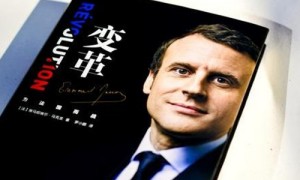By lifting the "ban on collective self-defense" and nullifying the long-standing "exclusively defense-oriented policy", Prime Minister Shinzo Abe's Cabinet has effectively gutted the war-renouncing Article 9 of Japan's postwar Constitution.
This is a huge political victory for the adventurous Abe and his right-leaning Liberal Democratic Party.
Without the hassle of amending the Constitution, which requires majority approval in a public referendum following Diet endorsement by two-thirds or more of the lawmakers in each chamber, they have bypassed and reinterpreted it.
But this may prove a hazardous loss for Japan as a nation and a country. On the surface, the Cabinet resolution has removed the legal constraints imposed by a Japanese Constitution of foreign design, delivering the illusion that Japan is closer to being "normal". But the fundamental overhaul of the country's security posture has damaging potential that far outweighs such cheap delusion.
True, the Abe-directed reinterpretation will give Japan and its Self-defense Forces more options in dealing with different forms and degrees of security threats. It will simultaneously expose Japan and its military to substantially more complicated and challenging security conditions. But Abe doesn't care. Or else he would not have been as hawkish in the neighborhood. He even appears eager for the standoff in the East China Sea to turn to blows.
Nobody can predict what will follow now Abe's agenda is coupled with the new latitude.
Abe has talked and done a lot to justify his less-than-popular revisionist moves. Yet he has presented nothing convincing.
On one hand, Abe has said he wants Japan to be a "proactive" contributor to global peace and security, so he needed to do away with the legal constraints on "collective self-defense". On the other hand, he has been making trouble in the immediate neighborhood, displaying his and his administration's true colors as saboteurs of peace and security.
Abe says he wants Japan to become a "normal" country. So Japan's military needs to be like those of other countries. But he ignores why his country and its military have been deprived of this "normalcy". The recalcitrant attempts by Japanese politicians, including Abe, to rewrite history and their country's unseemly record in World War II are reminders that Japan doesn't deserve being treated as a normal country.
While leaving room for Abe to further reinterpret the Japanese Constitution, Tuesday's Cabinet resolution has opened Pandora's box for Japan, East Asia, and the world at large.
相关阅读:







